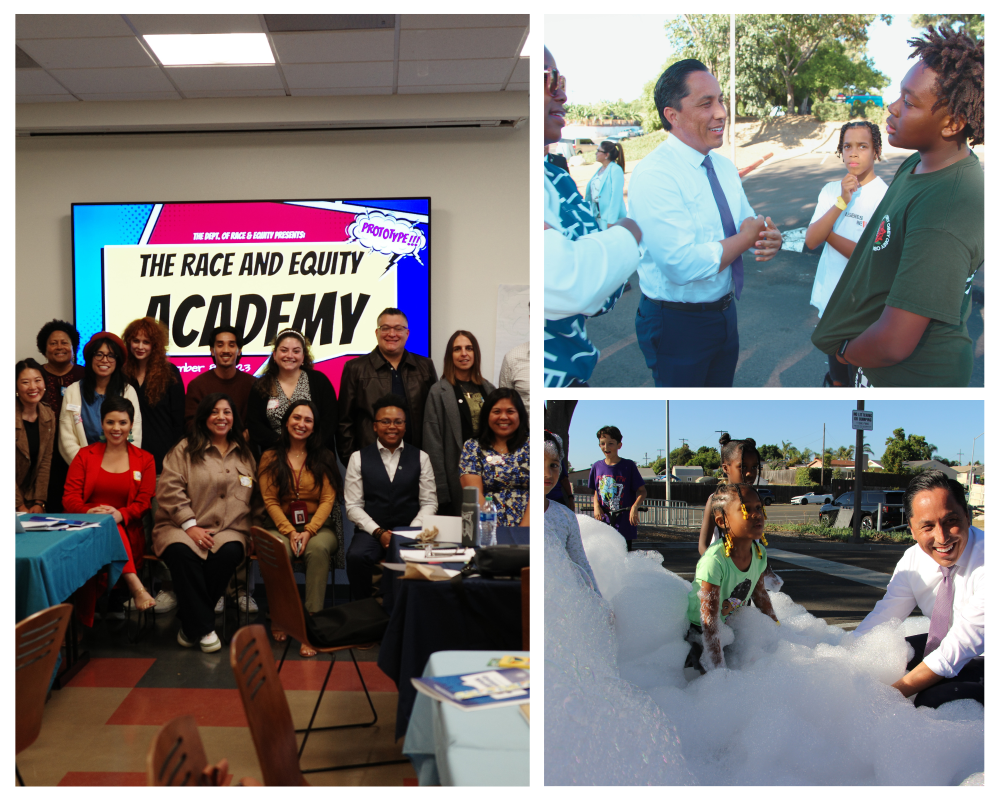From the Mayor's Desk: No, San Diego is not backing away from commitment to equity on my watch

A true commitment to equity is not defined by the title of a single position or the tenure of one leader; it is about creating permanent, systemic change. That is exactly what we have done at the city of San Diego — in every decision across every department.
The claim in a recent opinion essay in The San Diego Union-Tribune that the departure of a key city official and a budget-driven departmental consolidation signal a retreat from our values diminishes the incredible work of the team that led the intensive effort to change systems that perpetuated historic inequities and systemic racism. My administration has made equity a central pillar of every major policy, from housing and economic development to infrastructure investments and public safety. These efforts are producing tangible results that are uplifting historically underserved communities in ways that no previous administration has achieved.
The office of race and equity, which I established, is not disappearing. It now resides in the Human Resources Department, ensuring that its mission influences every hiring decision, training program, and workplace policy.
Under my leadership, we’ve directed unprecedented resources to historically underserved communities. The impact of these equity-driven policies is already evident across San Diego.
A key part of embedding equity in city operations is ensuring our workforce is equipped to recognize and address systemic inequities. That’s why we created a citywide training program that provides all 12,000 city employees the tools to integrate equity into their work. These trainings cover the history of systemic racism, implicit bias, and structural disparities, helping employees apply an equity lens to budgeting, service delivery, and community engagement.
Our Parks for All of Us initiative promotes equitable investments in San Diego’s parks system, changing the city’s approach to park funding that left many lower-income communities with fewer recreational resources. We’re now prioritizing park investments in areas with the greatest need while creating a more interconnected, accessible park system.
Similarly, the equity-focused Build Better SD initiative overhauled the way we collect and invest Development Impact Fees (DIF) for parks, libraries, transportation and fire-safety projects across the city. Previously, these fees were sequestered in 43 separate neighborhood-restricted accounts and resulted in newer, wealthier communities receiving significantly more investment while underserved areas saw fewer improvements. By putting resources where they are most needed, we are closing historic gaps in neighborhood infrastructure.
My administration also led major reforms to the policies guiding how specific projects are prioritized for funding, overhauling a city council policy to award higher priority to projects serving historically disadvantaged communities.
The City Planning Department has developed new guiding policy and planning documents for the city, like our Environmental Justice Element in the city’s General Plan, which addresses disparities in air quality, access to green space and mobility across San Diego. This initiative ensures equity is a consideration in every single city planning decision. Our Opportunity Fund directly increases access to recreational programs in underserved areas. In its first year, the fund dramatically increased financial support to six recreation centers, allowing them to expand programs, events and improve facilities for neighborhood kids.
The suggestion this administration has backed away from economic equity efforts is particularly misleading. Just last month, our Purchasing and Contracting Department launched the Small Contractor Boot Camp — a free, 10-session program designed to help small contractors expand their businesses and successfully compete for city construction projects. The program is tailored to small, disadvantaged, minority, and woman-owned businesses, equipping them with the skills and knowledge necessary to navigate City contracting opportunities.
Again, furthering equity does not rest with a single department, leader, or funding allocation. It’s now the daily work of every one of our employees and policies — an active, ongoing commitment that requires integrating fairness into the city’s fundamental operations. Every spending decision, every policy, and every infrastructure investment is guided by this principle.
I recognize that change can be unsettling, but I will not let unfounded speculation undermine the real progress we’re making at the city — progress that I predict will continue long past my administration.
My commitment to ensuring every San Diegan — regardless of race, income, or neighborhood — has access to opportunities remains as strong as ever. We are moving forward — for all of us.
